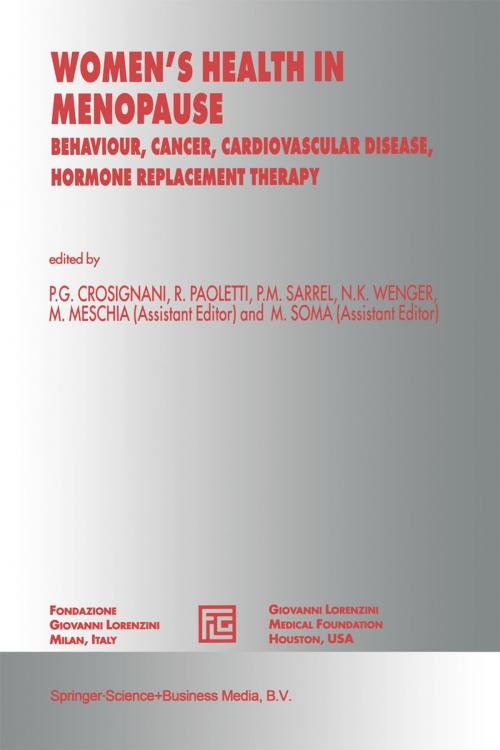Women’s Health in Menopause
Behaviour, Cancer, Cardiovascular Disease, Hormone Replacement Therapy
Nonfiction, Science & Nature, Science, Biological Sciences, Biochemistry, Health & Well Being, Medical, Specialties, Internal Medicine, Cardiology| Author: | Maurizio Soma, M. Meschia | ISBN: | 9789401110242 |
| Publisher: | Springer Netherlands | Publication: | December 6, 2012 |
| Imprint: | Springer | Language: | English |
| Author: | Maurizio Soma, M. Meschia |
| ISBN: | 9789401110242 |
| Publisher: | Springer Netherlands |
| Publication: | December 6, 2012 |
| Imprint: | Springer |
| Language: | English |
Few topics in women's medicine today are as fraught with confusion and controversy as the question of appropriate treatment for menopausal symptoms and the prevention of negative long term health outcomes common to post-menopausal women. Cardiovascular disease (CVD), osteoporosis, and cancer -- the most common causes of death, disability and impaired quality of life for women -- can potentially be prevented or forestalled by dietary, behavioral, and drug interventions. A better understanding of the natural history of the menopause is critical to providing better care. If women and their physicians have a better understanding of predictors of risk, they could make more informed decisions about interventions related to menopausal symptoms, CVD, osteoporosis and gynecologic and breast cancer. Few other recently introduced medical interventions have as great a potential of affecting morbidity and mortality as does hormone replacement therapy (HRT). HRT has produced effect on health risk: some are reduced, some are raised, and some uncertain, and these data are interpreted differently by various scientific, medical and consumer groups.
Few topics in women's medicine today are as fraught with confusion and controversy as the question of appropriate treatment for menopausal symptoms and the prevention of negative long term health outcomes common to post-menopausal women. Cardiovascular disease (CVD), osteoporosis, and cancer -- the most common causes of death, disability and impaired quality of life for women -- can potentially be prevented or forestalled by dietary, behavioral, and drug interventions. A better understanding of the natural history of the menopause is critical to providing better care. If women and their physicians have a better understanding of predictors of risk, they could make more informed decisions about interventions related to menopausal symptoms, CVD, osteoporosis and gynecologic and breast cancer. Few other recently introduced medical interventions have as great a potential of affecting morbidity and mortality as does hormone replacement therapy (HRT). HRT has produced effect on health risk: some are reduced, some are raised, and some uncertain, and these data are interpreted differently by various scientific, medical and consumer groups.















